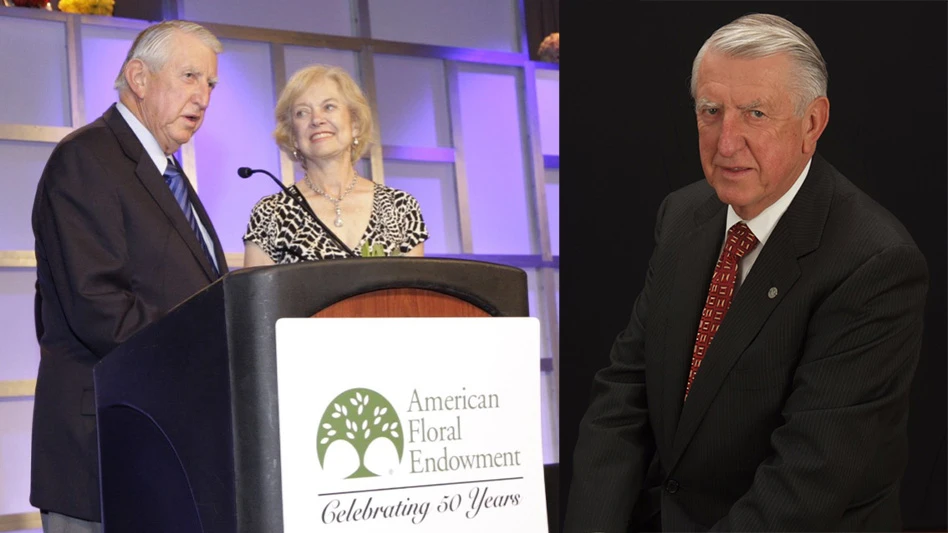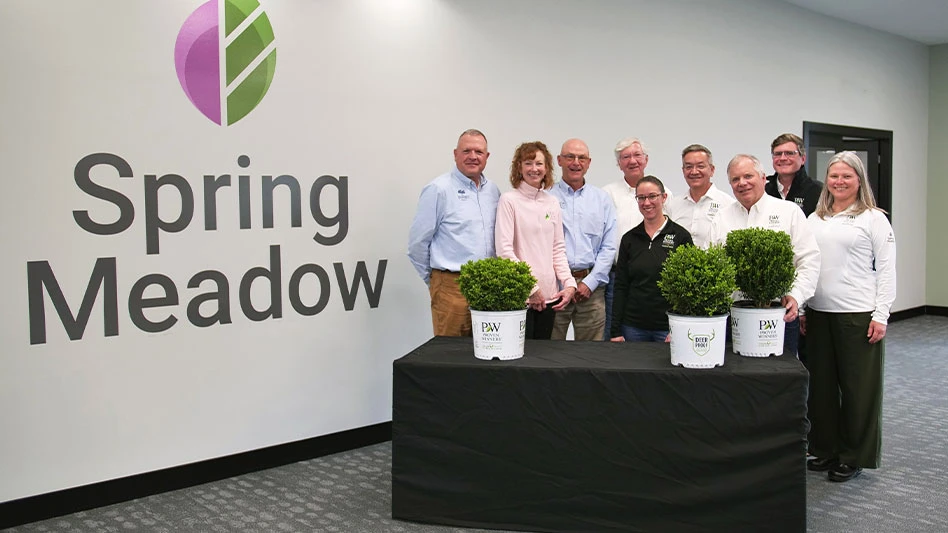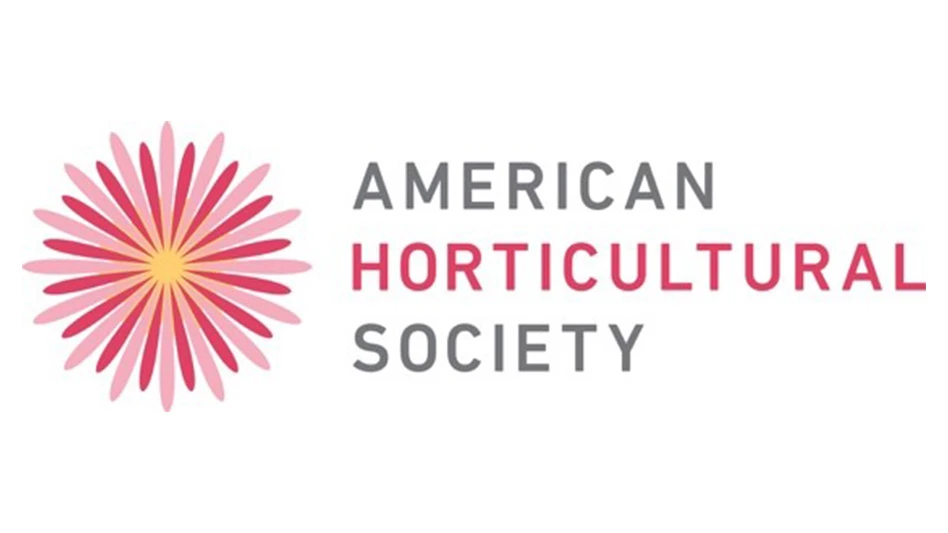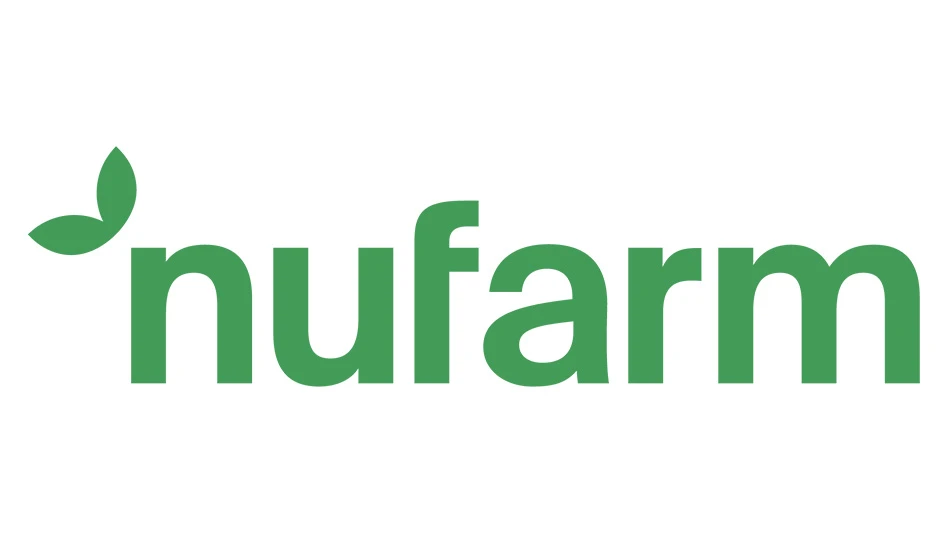
Peter Orum learned the value of hard work at a young age. His father made him his first undersized wheelbarrow when he was five years old, growing up on his parents’ two-acre nursery in northern Denmark.
“The deal was, we kids would work in the nursery and we were not paid for that,” Peter says. “We each got a plot of land where we could grow vegetables.”
The Orum children travelled with their father to the market, bicycles loaded with their harvest. They were able to keep the money from any vegetables they sold. It effectively taught Peter a lesson that has served him well throughout his life.
“You got nothing without work,” he says.
A horticultural engineer
At 15, Peter left his family’s nursery in Jutland, Denmark. In keeping with the traditional European model, he took apprenticeships at Spejlborg and Vilvorde Nurseries before continuing his education at the Vilvorde Horticulture School in Copenhagen.
Then, he enlisted in the Danish army.
“Back in those days, in the Cold War, young men had two choices,” he says. “Either you enlisted or you were drafted.”
Volunteers had to serve a longer term, but they earned some money and had some say in where they were sent. Peter was accepted into the Army Corps of Engineers, where he rose in the ranks. He became a sergeant and later an officer. As combat and construction engineers, members of the corps would do anything from building roads, airstrips and bridges to training with demolition and as regular combat soldiers. Peter learned much in the army that helped mold his business acumen, but the most useful skills were organization and interpersonal communication.
“I learned a lot about how to deal with people, organize things, keep things straight,” he says. “Many people comment that they can see that in the nursery.”
His army experience even gave him a foot in the door across the ocean. After his second army contract, Peter wanted to return to his trade, but he also wanted to see more of the world. He set his eyes on the United States.
His plan was to stay for a couple of years, learn something about the trade and return to Denmark and start a nursery. In 1965, when Peter was 23, he was hired by Jack Hill, general manager of D. Hill Nursery Company in Dundee, Ill.
“My first boss in America said, ‘I didn’t hire you for what you knew about horticulture. I hired you because you were an officer in the army,’” Peter says.
After a few months of training, Peter was quickly promoted to superintendent of propagation and served in this position for almost seven years. However, a few factors conspired to change the course of Peter’s plan and his life. Most notably, he met Irma Hertzmann, his wife-to-be, in a Danish club in Chicago. She was born in Chicago of Danish parents; she went to the club to learn Danish. They were married in 1967, and the newlywed couple traveled to Denmark to explore the possibility of starting a nursery there. Peter visited with a former teacher at the horticulture school to share his idea.
“He was a very blunt man; he told me it would be a very bad idea, which was not what I needed to convince the new wife to move to Denmark,” Peter says. “I asked him ‘Why?’ And he said ‘Because we have too many damn plants over here. You should stay where you are and grow plants.’”
On the trip back to America, Irma and Peter decided to start their own nursery in Illinois.
The birth of Midwest Groundcovers
The early days of what would become Midwest Groundcovers were anything but lavish. In 1969, Peter and Irma stuck 12,000 groundcover cuttings in the West Chicago backyard of their friend and mentor, John Wilde. Later that same year, the Orums purchased five acres of land on Illinois Route 25, just north of St. Charles, Ill., and they moved the 12,000 groundcover cuttings to that location. He had no employees, just a dream and the passion to make it happen.
“It was my wife and I and family and friends that would come on the weekend and would work for beer and hamburgers,” Peter says. “Today, it’s not quite that way. We have more than 300 people working today. And they won’t work for beer and hamburgers anymore!”
The nursery evolved little by little into the well-oiled machine that cranks out 20 million plants each year. Irma used skills learned in her business administration experience in Chicago to help nurture the new company. In 1972, Peter hired his first employee.
“You double from 1 to 2 or 2 to 4 and it doesn’t look like much,” Peter says. “But when you double from 100 to 200, all of a sudden it starts looking like something.”
While the nursery grew, Peter supplemented his horticultural knowledge, management and construction skills from the Danish Army Corps of Engineers by taking night courses to learn accounting and business. In 1978, he earned a bachelor of science in finance and accounting from Northern Illinois University.
The Orums also welcomed children into their lives. Christa Orum-Keller, Peter and Irma’s daughter, is currently the chairman of the board. She grew up at the nursery, but it was not a given that she would take over the family business.
“When my kids were in preschool, they asked what my preschool was like,” Christa says. “It was me in the middle of the original five-acre nursery playing in the sandbox and on the swing set they built for me, while my parents worked around me. It was enjoyable and comfortable and I was surrounded by caring family and beautiful plants in the outdoors. As I grew older, my parents were never pushing me to be involved with the business and my interest came over a long period of time. I saw it as our way of life — a wholesome way to make a living while contributing to a most wonderful improvement of the world around us.”
In addition to a master’s degree in business administration, a bachelor’s in landscape architecture and an associate’s in horticulture, Christa is a Licensed Landscape Architect and an Illinois Certified Nursery Professional. She planned and designed Midwest Groundcovers’ St. Charles headquarters, sales, distribution and trial garden facility, a project that was completed in 1994. Since 2017, Christa has been the chairman of Midwest Groundcovers and Midwest Trading Horticultural Supplies, a wholesale supplier of nursery and greenhouse mixes that the Orums founded in 1981. Peter is still on the board, but his role has changed. The decisions are no longer his to make, but at 76 years old, he’s at peace with that. Now, he tries to help as he can, in the background.

An inspiration to others
One of the toughest tasks for any entrepreneur is letting go. Like many nurserymen, Peter knew plants. Running a business was different. He learned that there are different levels of delegation. First, you do everything yourself. Then, you hire a foreman and a crew and send them on certain tasks. But he says the level that determines whether your fledgling company will grow or collapse is if you can delegate areas of responsibility, not just tasks. One of the keys to Midwest’s success has been Peter’s ability to delegate to managers, then manage the managers.
“You have to learn to do that, and you have to learn how to feel good about it,” he says. “That’s the scariest thing for most people, especially those who have done things themselves. To cut out areas of responsibility and say, ‘OK, manager Jones, this is your responsibility now. You don’t report everything you’ve done, you keep me updated on how things are going and I keep an eye on it, and we plan things together.’ Many people are afraid they lose control that way. But the only way to be happy, and to function, is to develop yourself so you can feel good and accomplished by seeing others do the things you did.”
This level of delegation requires a willingness to let your employees stretch and grow, without swooping in to fix every little thing.
Joe Hobson is president and COO of Midwest Trading Horticultural Supplies, which is within the Midwest family of companies. Hobson joined the company in 2013 after 25 years in the landscape industry. He’s enjoyed working with Peter and Christa because of the trust they’ve placed in him.
“They did not micromanage and still don’t,” Joe says. “I think their expectations of me is ‘That’s your job, to run the company.’ Peter has always been that way. His vision is to try to get the right people in the right spot, give them a degree of direction and let them go.”
One of Peter’s longest-tenured employees is Gary Knosher, who recently celebrated 40 years with Midwest Groundcovers. He was hired as a plant propagator and worked his way up to become the company’s current president and CEO.
“Peter has many fine qualities, but what stands out to me is he is a true example of an entrepreneur,” Gary says. “He has passion, motivation and total commitment to the cause, whatever that might be. He is not afraid to take risks, and he has a strong sense of self — his likes, dislikes, goals and where he wants to go. The benefit to me and to anyone else who has worked in the Midwest companies, is that he has created many opportunities for those who have chosen to take them.”
Those opportunities may be within the Midwest family of companies, or they may lay elsewhere. As Midwest Groundcovers continued to grow, the Orums kept their entrepreneurial itch. In 1981, they founded Midwest Trading. In 1986, they founded Midwest GROmaster, a company that designs and manufactures EBB-FLO benches and provides custom irrigation solutions for other growers.
“We have many employees that have been here for 20 years or more,” Gary says. “For those he has inspired to be entrepreneurs, they are no longer here, and are out running their own successful companies, if they paid attention.”
Gary, of course, decided to stay. As he climbed the ladder from propagator to production manager, sales manager, and now president and CEO, he has remained grateful for the opportunities. But that’s how Peter operates: He gives people he trusts chances to grow, and if they make the most of them, they can go far.

“I have had the opportunity to travel and see other nurseries and other countries,” Gary says. “I have had the opportunity to meet and work with some of the most wonderful people in, and outside of the company, and to be involved in this great industry. To sum it up, he has created the opportunity for me to carve out a career in doing the things I love to do.”
Peter’s desire to see his employees accomplish more and more led him to begin a series of in-house management training classes that he would run with Midwest’s HR manager. The classes take place during the winter and cover subjects like how to be a manager, how to be a better communicator, how to be more organized — useful topics for upwardly mobile employees. He expects a lot from his team, but he provides the resources for them to succeed.
“Respect people,” Peter says. “Be honest with them. Be stern with them. We have to get the work done, and we are here to get the work done together. One thing I preach in my in-house training classes is to forget the word ‘I.’ It is ‘we’ that are doing these things. Some people, especially salesmen, love to say ‘I can get you 200 of those; I will get it delivered before the other guys.’ But I can’t do a damn thing without ‘we’ being together doing it.”
Joe Hobson says one of Peter’s most inspiring qualities as a leader are his excellent listening skills and his respectful demeanor. Christa Orum-Keller concurs, saying her father is a great teacher who always wants people to understand the “why” behind what they do.
“When I was 5, there was a need to expand production space in the original five-acre nursery,” Christa says. “The new greenhouse was planned to cover the area where my sandbox was and my father asked me if it would be OK if we relocated the sandbox. Being asked and included in the plans at such a young age made an impression and was meaningful to me. It illustrates one of the ways Peter is good at connecting deeply with people and understanding their motivation. The sandbox was moved and the greenhouse is still there growing plants for us.”
A (inter)national perspective
In the beginning, Peter didn’t have time for anything but building his business. But as the Midwest family of companies grew and he began to learn to delegate, Peter began getting involved with associations. In the 1980s, he joined the Illinois Nurserymen’s Association, which then became the Illinois Green Industry Association, and was president from 1991 to 1992.
Peter also served many years on the board of the Horticultural Research Institute (HRI), the research arm of the American Nursery and Landscape Association (ANLA) — now AmericanHort. He has been instrumental in establishing many HRI funds, four from the Midwest companies, including The John E. Wilde Propagation Fund, in honor of mentor John Wilde; The Lydia & Palle H. Orum Research Fund, in honor of Peter’s parents; and the Orum-Midwest Research Fund; in honor of HRI’s 50-year anniversary. Peter was president of HRI before joining the ANLA’s board, where he was president from 2004 to 2005. In 2001, Peter was named Grower of the Year by Nursery Management magazine.
Becoming a player in the national associations meant getting involved with politics. But putting on his political hat was never something Peter shied away from, and going to Washington to speak for his fellow growers as an association representative was a job he took very seriously.
“You have to be careful that you know which hat you have on at the time,” he says.

As an immigrant himself, Peter has a unique perspective on the immigration debate. But as a business owner in an industry that relies heavily on temporary labor from foreign countries, it’s a constant frustration.
“In all my years of political work, my biggest disappointment is that we did not get a comprehensive immigration reform,” Peter says. “It is that we didn’t get papers for those who are here and we did not get a guest worker program that functions. Will we get it someday? Yes, because we have to, but things don’t look real good right now.”
The landscapers, nurseries and independent garden centers that Midwest sells its plants to are buying, but the labor shortage is making it difficult to take advantage of the strong economy.
“I feel very good about having provided a livelihood for hundreds and hundreds or maybe thousands of families over the years,” Peter says. “It takes a lot of great people to do good things. It is only with good people that you can do it. We have and have had some very great managers who went to college for one thing or another and we have had a tremendous bunch of Mexican families working for us. In these days when there’s all the talk about throwing everybody out, I will certainly say if it hadn’t been for the Mexican people, there wouldn’t have been much of a nursery.”

Labor shortage or not, the business has kept evolving.
For decades, recycling, reuse and reduction of waste have been part of Midwest Groundcovers’ regular practices. Environmentally responsible habits such as integrated pest management and water runoff recycling at production facilities are a way of life. Midwest reuses plant containers, recycles growing shelter plastic and integrates vegetated swales into production facilities. While most nurseries dispose of all covering plastic each year, Midwest is one of the few nurseries to reuse 70 percent of it annually. The nursery works with recycling firms that recycle all non-reusable covering plastic and containers.
Midwest facilities also collect and burn wood, office paper and cardboard using the heat generated to warm greenhouses for ivy, perennial propagation, woody plant propagation and sedum production. At Midwest’s newest nursery, 90 percent of the irrigation water is reused.
The product mix has evolved, as well. “We do more than just old-fashioned groundcovers,” Peter says. Midwest grows more than 500 varieties of perennials and ornamental grasses, 275 different shrubs and evergreens, 250 species of native plants and yes, 130 types of groundcovers.
While sometimes a business owner has to make short-term decisions, Peter has always kept an eye on the long-term.
“Look at his vision — 15 to 20 years ago, this was a cornfield,” Joe Hobson says. “That took a lot of thinking, planning and doing to build this wonderful facility. Now we stand on their shoulders. It’s up to us to continue to work on those long-term goals and be the next generation of what we’re building so the next generation can stand on us.”
They’d do well to remember one of Peter’s frequent quotes: “Life is not always easy, but it is always interesting.”

Explore the July 2018 Issue
Check out more from this issue and find your next story to read.
Latest from Nursery Management
- The HC Companies, Classic Home & Garden merge as Growscape
- Terra Nova releases new echinacea variety, 'Fringe Festival'
- Eason Horticultural Resources will now officially be known as EHR
- BioWorks receives EPA approval for new biological insecticide for thrips, aphids, whiteflies
- Ellen Mackenbach-Lakeman appointed new CEO of Dümmen Orange
- The Growth Industry Episode 3: Across the Pond with Neville Stein
- Southern Garden Tour sets 2025 dates for trial garden open houses
- New book explores plants that thrive in Rocky Mountains




